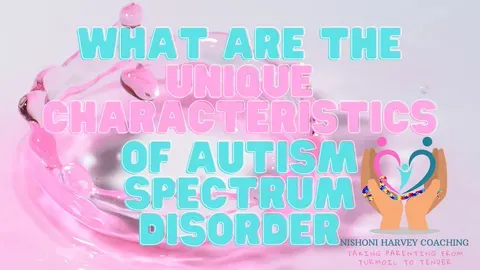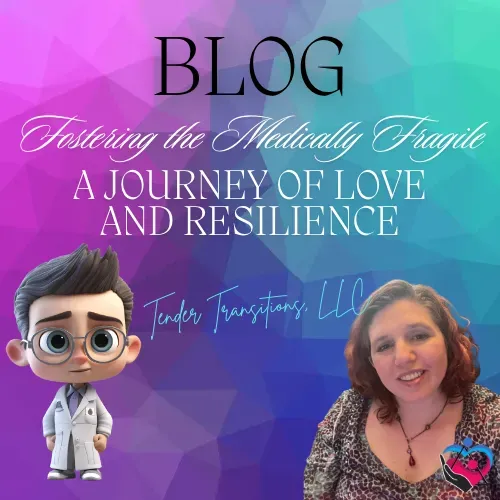What Are the Characteristics of Autism Spectrum Disorder?
As an Autism Parenting Coach, I believe that every child is unique and has their own strengths and challenges. When it comes to Autism Spectrum Disorder (ASD), it's important to approach it with empathy, understanding, and a positive mindset. Autism is a developmental disorder that affects communication, social interaction, and behavior, and it presents itself in various ways in different individuals. Let's take a closer look at some of the unique characteristics of ASD and how positive parenting strategies can support children with autism.
Unveiling the Unique Characteristics of ASD
Social Interaction
The complexities of social interaction can be a significant characteristic of ASD. Individuals with ASD may struggle with understanding social cues, making eye contact, and engaging in social situations. They may have difficulty interpreting nonverbal communication, such as facial expressions and body language, which can affect their ability to form and maintain relationships. Some individuals with ASD may prefer to be alone and may have challenges in developing friendships and engaging in social interactions that come naturally to others.
LEARN HOW TO SUPPORT YOUR ASD CHILD THROUGH CHALLENGES WITH SOCIAL INTERACTION
Communication Challenges
Children with ASD may have difficulties with verbal and non-verbal communication. They may struggle with understanding social cues, maintaining eye contact, or engaging in reciprocal conversations. They may also have a limited range of interests and may not engage in typical social interactions. The importance of patience and understanding in supporting a child with ASD in developing their communication skills cannot be overemphasized. Using visual supports, social stories, and other communication tools can be effective in promoting communication and social skills development.
MORE INFORMATION ON UNLOCKING COMMUNICATION CHALLENGES WITH ASD
Repetitive Behaviors and Restricted Interests
Children with ASD may engage in repetitive behaviors, such as hand flapping, spinning, or lining up objects. They may also have restricted interests and may focus intensely on a particular topic or activity. I encourage you to embrace and support your child's unique interests and find ways to incorporate them into your daily routines and activities. These interests can serve as a source of motivation and engagement for your child.
MORE INFORMATION ON THE UNIQUE BEHAVIORS OF THOSE WITH ASD
Sensory Sensitivities
Many children with ASD have sensory sensitivities and may experience sensory overload or sensory-seeking behaviors. They may be hypersensitive or hyposensitive to sensory inputs such as noise, lights, textures, or smells. It's vital to create a sensory-friendly environment for your child, which includes minimizing sensory triggers, providing sensory breaks, and incorporating sensory activities that can help regulate their sensory experiences.
LEARN ABOUT NURTURING SENSORY SENSITIVITIES
Executive Functioning Challenges
Children with ASD may have difficulties with executive functioning skills, such as planning, organizing, and problem-solving. They may struggle with managing time, initiating tasks, and transitioning between activities. I advocate for using visual schedules, visual cues, and other visual supports to help the child with their executive functioning skills. Breaking tasks into smaller steps, providing clear and concise instructions, and using visual timers can also be helpful strategies.
LEARN ABOUT HELPING YOUR ASD CHILD OVERCOME EXECUTIVE FUNCTIONING CHALLENGES
Challenges with Transitions and Changes
Transitions and changes can be particularly challenging for individuals with ASD. They may have difficulty adapting to changes in routines, schedules, or environments. Even minor changes can cause distress and anxiety, as individuals with ASD often thrive on predictability and sameness. Challenges with flexibility and adapting to new situations can make transitions and changes more difficult for individuals with ASD.
MORE ON HELPING YOUR AUTISTIC CHILD NAVIGATE TRANSITION AND CHANGE IN A POSITIVE AND SUPPORTIVE WAY
Emotional Regulation
Children with ASD may have challenges with emotional regulation and may experience meltdowns or shutdowns when overwhelmed. As an Autism Parenting Coach, I emphasize the importance of teaching emotional regulation skills to children with ASD. This includes helping them identify and label their emotions, teaching coping strategies such as deep breathing or self-calming techniques, and creating a calming space where they can retreat to when they need to self-regulate.
LEARN HOW TO EMPOWER YOUR ASD CHILD TO DEVELOP EMOTIONAL REGULATION SKILLS
Strengths and Talents
Children with ASD often have unique strengths and talents, such as exceptional memory, attention to detail, or creativity. Let me encourage you to focus on your child's strengths and talents, and provide opportunities for them to develop and express their abilities. This can help boost their self-esteem, build their confidence, and enhance their sense of identity.
It is important to note that individuals with ASD are unique and can have varying degrees of these characteristics. Some individuals may exhibit all of these characteristics, while others may only exhibit a few. It is also important to recognize that individuals with ASD have strengths and abilities, and their experiences and perspectives are valid and valuable.
Conclusion
In conclusion, understanding the unique characteristics of Autism Spectrum Disorder from a positive parenting perspective involves recognizing and embracing the strengths and challenges of children with ASD. By creating a supportive and inclusive environment, promoting communication and social skills development, addressing sensory sensitivities, supporting executive functioning skills, teaching emotional regulation, and celebrating strengths, parents can help their child with ASD thrive and reach their full potential. Remember, each child with ASD is unique, and with empathy, understanding, and positive parenting strategies, we can empower them to navigate the world with confidence and success.
SCHEDULE A FREE AUTISM PARENTING COACHING CALL WITH AUTISM PARENTING COACH, NISHONI HARVEY, TODAY!

